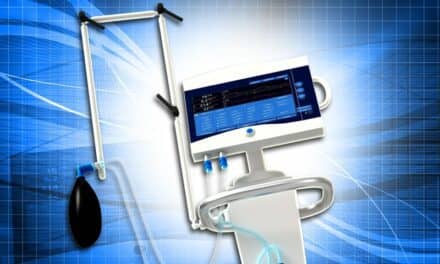The Association of Medical Device Reprocessors shared a new report, “Global Regulatory Standards for ‘Single-Use’ Medical Device Reprocessing and Remanufacturing,” the first roadmap to help Notified Bodies, Ministries of Health, and regulatory authorities of medical devices to unlock benefits regarding reprocessed single-use devices for hospitals and health systems worldwide.
The report includes all known regulations, standards, and guidances that govern the practice of reprocessing, worldwide.
When health systems and hospitals use regulated reprocessed “single-use” devices, they reduce procedure costs without compromising patient safety, build supply chain resilience, and help governments and hospitals get to net zero carbon emissions faster, the association says. Given the dual threats of disruptive pandemics and climate change, regulators worldwide must act now to usher in responsible, regulated medical device reuse regulation.
Reprocessing single-use medical devices saves hundreds of millions of dollars a year. But savings could go into the billions. According to a report issued by AMDR, hospitals in the U.S., which has the most robust reprocessing programs in the world, could reprocess an additional $2.28 billion, if those with existing programs reprocessed as much as the highest 10% performing hospitals.
The report is available through a registration process.
“Our ‘disposable’ culture in healthcare is not financially or environmentally sustainable,” says Daniel J. Vukelich, esq., president and CEO, Association of Medical Device Reprocessors. “Hospitals that reprocess SUDs reduce greenhouse gas emissions, costs, and waste. Our Global Regulatory Standards report provides a roadmap for regulatory authorities in more countries to create legal, safe, and effective processes for more hospitals to cut waste.”
In 2000, the U.S. Food and Drug Administration became the first regulatory authority in the world to create a pathway for commercial SUD reprocessing, discouraging the practice from occurring within hospitals. Today, over 31 million SUDs are reprocessed and safely reused without any increased risk to patient safety. FDA considers the devices “substantially equivalent” to original devices. The EU allows member states to “opt-in” to reprocessing, and the UK allows the practice under a similar regulatory scheme to that in the U.S.
“From our inception, AMDR has believed that a strong regulatory framework provides the best path for hospitals to reduce waste and cut costs,” says Vukelich. “We are proud to help as many hospitals as possible to build a circular economy in healthcare.”





